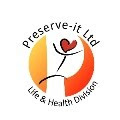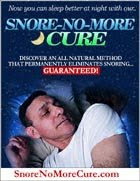
1. Reverse indoor ceiling fans for summer and winter use.
2. When using central air conditioning, leave vents open in unused rooms.
3. Do not raise the thermostat on your water heater higher than 120 degrees.
4. Set thermostat for 68 degrees in winter and 78 degrees in summer.
5. Turn down or shut off your water heater when away from home for an extended time.
6. Turn lights off even when leaving a room for a short time.
7. Install energy-efficient windows.
8. Minimize door-opening when using the oven, which reduced oven temperature by 25 degrees to 30 degrees.
9. Use your dryer more efficiently by cleaning the lint filter after every load.
10. Unplug appliances you rarely use.
11. Whenever possible, use a microwave oven instead of a conventional oven or stove.
12. Use electric appliances only when you need them.
13. Replace or clean air filters on your air conditioning unit once a month.
14. Turn off lights, computers, or any appliance not in use.
15. Only purchase appliances with the "Energy Star" label, which use less electricity than other models.
16. Avoid washing clothes in hot water.
17. Save money and energy by using compact fluorescent light bulbs.
18. Keep your water heater wrapped in an insulated blanket.
19. When away from home in summer, set your thermostat higher; in winter, lower.
20. Insulate your home.
21. Install weather-stripping around doors and windows.
22. At work, turn off electrical equipment when going home.
23. Take advantage of natural cooling techniques; plant trees to shade your home.
24. Likewise for outside air-conditioning units.
25. Set your refrigerator no higher than 38 degrees and your freezer no higher than 5 degrees.
26. Use cold water whenever possible.
27. Sync your outdoor lights to a timer.
28. Buy electricity produced by low-or-zero-pollution utilities.
29. Save $200 a year by closing your chimney flue when not using the fireplace.
Choose better body care products. Just because a label says "gentle" or "natural" doesn't mean that it is safe. Look up your products on the cosmetics database website. Read the ingredients and avoid at all costs words such as: Triclosan, BHA, fragrance, parfum, oxybenzone, parabens.
Go Organic & eat fresh foods. Opt for organic fruits and veggies, or use the Food News website to find conventionally grown produce with the least pesticides. Choose milk and meat without added growth hormones. Limit canned food and infant formula, as the linings in cans contain bisphenol A (BPA).
Avoid fire retardants. Choose snug-fitting cotton pajamas for kids, and repair or replace worn out foam items.
Pick plastics carefully. Some plastics contain BPA, which is linked to cancer. Avoid clear, hard plastic bottles marked with a "7" or "PC" and choose baby bottles made from glass or BPA-free plastic. Don't microwave plastic containers. Stay away from toys marked with a "3" or "PVC". Give your baby a frozen washcloth instead of vinyl teethers.
Use greener cleaners & avoid pesticides. Household cleaners, bug killers, pet treatments, and air fresheners can irritate kids' lungs, especially if your kids have asthma. Investigate less toxic alternatives. Use vinegar in place of bleach, baking soda to scrub your tiles, and hydrogen peroxide to remove stains. Consider having an office or home eco-consultation to see where you may be able to make some immediate changes & savings, for your home health, your pocket book, and also reduce your carbon footprint.





